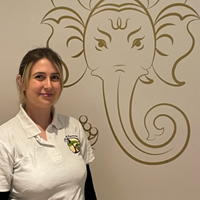Getting To The Point If It
Acupuncture Awareness Week 2023
My governing body The British Acupuncture Council is aiming to raise the profile of Acupuncture as a valid healthcare choice which is used to help manage a wide range of conditions, varying from migraines, musculoskeletal pain, digestive issues, women’s health, male and female fertility, allergic rhinitis and many other conditions.
What exactly is Traditional Chinese Medicine (TCM) Acupuncture and how does it work?
Traditional Chinese Medicine has been around for thousands of years helping people regain balance and harmony in their body and minds. Acupuncture adopts a holistic approach, considering the body and mind as one, based on the idea that when there is a disturbance in the flow of ‘Qi’ health issues can occur i.e. pain. The TCM view is when there is pain or illness, there is an imbalance in the body.
Acupuncturists insert very fine needles into the body on specific acupuncture points along ‘meridian’ pathways throughout the body. Treatment is based on a thorough consultation including health, lifestyle factors and diet. The acupuncturist will also take your pulse and look at your tongue as this also shows us what is going on in the body, so please do not brush your tongue before your appointment! The aim of treatment is to promote harmony in the body and of course relaxation.
Is there a difference to dry needling/medical acupuncture compared to TCM and Five Elements Acupuncture?
The answer is YES!!! As mentioned already TCM acupuncture looks at the whole body and aims to promote balance and harmony, this is also applied to Five Element Acupuncture. Five Elements look at the body slightly differently to TCM acupuncturists as they base their treatment on the elements and what element is out of balance in your body i.e. Fire, Earth, Metal, Water and Wood. Each element represents different emotions, sound, colour and odour which they all take into consideration.
Medical acupuncture/dry needling is used by healthcare practitioners such as physiotherapists, doctors, nurses and osteopaths who take a short course in dry needling which specifically targets muscle trigger points and is commonly used to treat muscle tightness and pain. Unlike Traditional acupuncture where the in-depth course is a minimum 3-4 years long, medical acupuncture/dry needling does not focus on the mind and body as one and addressing or identifying the underlying cause of imbalance, it simply manages the symptoms.
How to find a Traditional Acupuncturist?
The British Acupuncture Council (BAcC) is the UK’s largest professional governing body having nearly 3,000 qualified Traditional Chinese Medicine acupuncturists. I am available every Wednesday afternoon/evening and some Saturday mornings at Deva Yoga - Chislehurst.
Follow the BAcC blog of Getting To the Point of It #Acupuncture Awareness Week 2023

